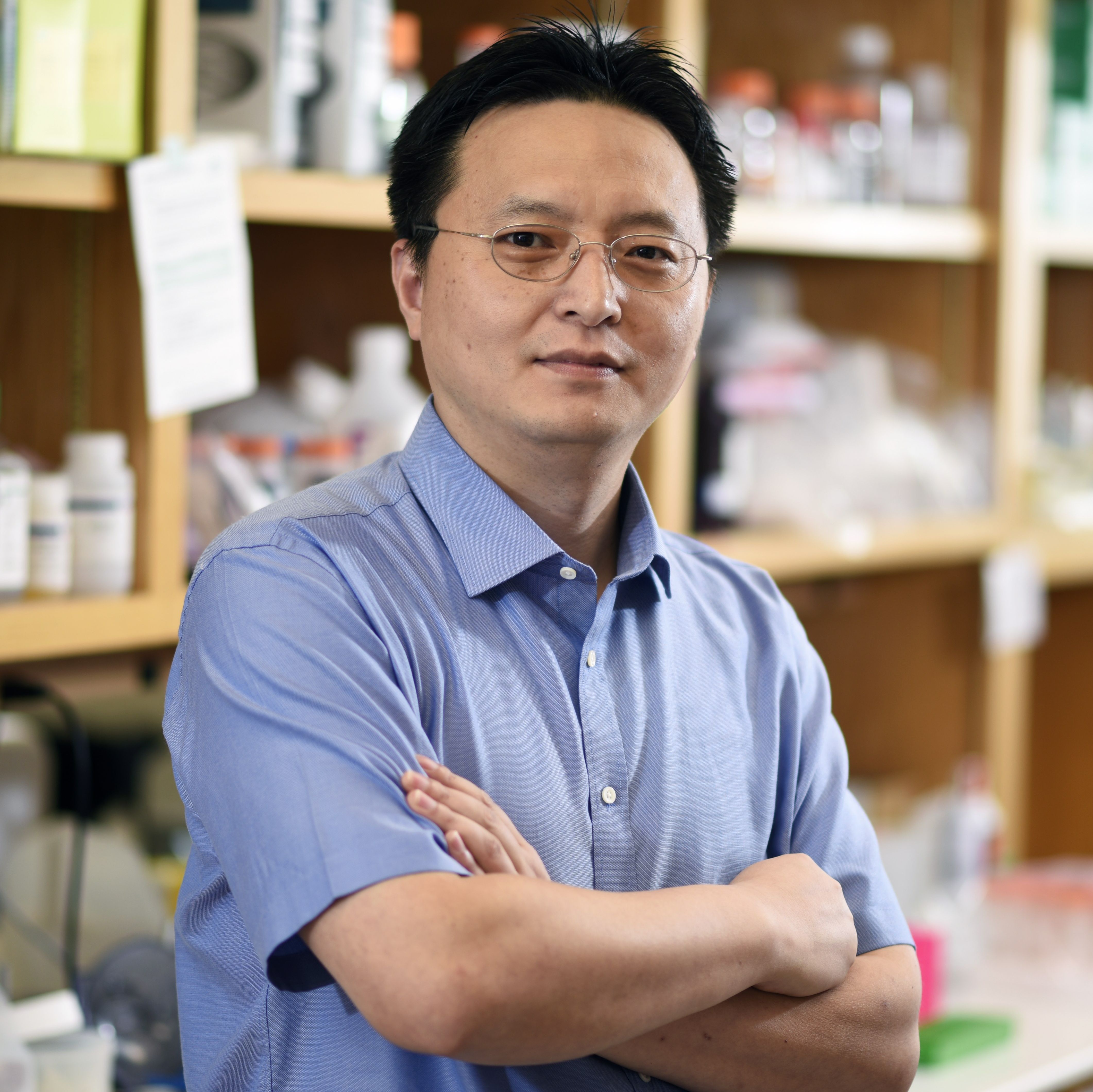Chenghang (Chuck) Zong, Ph.D.
Picture

Positions
- Associate Professor
-
Molecular and Human Genetics
Baylor College of Medicine
Houston, Texas United States
- McNair Scholar
-
Baylor College of Medicine
Houston, Texas United States
- Member
-
Dan L Duncan Comprehensive Cancer Center
Baylor College of Medicine
Houston, Texas United States
- Faculty Member
-
Genetics & Genomics Graduate Program
Baylor College of Medicine
- Faculty Member
-
Graduate Program in Cancer & Cell Biology
Baylor College of Medicine
Education
- BA from University of Science and Technology of China
- 01/2000 - Hefei, Anhui China
- Physical Chemistry
- PhD from University of California
- 01/2007 - San Diego, California United States
- Chemistry
- Post-Doctoral Fellowship at University of Illinois
- 01/2009 - Urbana-Champaign, Illinois United States
- Post-Doctoral Fellowship at Harvard University
- 01/2013 - Cambridge, Massachusetts United States
Professional Interests
- Single-cell whole genome sequencing, single-cell RNA-seq, single-cell ATAC-seq, single cell DNA damagenome, tumorigenesis.
Websites
Selected Publications
- Liu S, Cao W, Niu Y, Luo J, Zhao Y, Hu Z, Zong CC "Single-PanIN-seq unveils that ARID1A deficiency promotes pancreatic tumorigenesis by attenuating KRAS-induced senescence.." eLife. 2021;10:e64264.
- Zhu Q, Niu Y, Zong CC "Single-cell damagenome profiling unveils vulnerable genes and functional pathways in human genome toward DNA damage." Sci. Adv.. 2021;7:eabf3329.
- Bota-Rabassedas N, et al. "Contextual cues from cancer cells govern cancer-associated fibroblast heterogeneity.." Cell Rep.. 2021;35:109009.
- "Effective detection of variation in single-cell transcriptomes using MATQ-seq." Nature Methods. 2017 Jan;14:267-270.
- Tian L, Goldstein A, Wang H, Ching Lo H, Sun Kim I, Welte T, Sheng K, Dobrolecki LE, Zhang X, Putluri N, Phung TL, Mani SA, Stossi F, Sreekumar A, Mancini MA, Decker WK, Zong C, Lewis MT, Zhang XH "Mutual regulation of tumour vessel normalization and immunostimulatory reprogramming.." Nature. 2017;544:250-254.
- Zong C, Lu S, Chapman AR, Xie XS "Genome-wide detection of single-nucleotide and copy-number variations of a single human cell.." Science. 2012;338(6114):1622-6. Pubmed PMID: 23258894
- Zong CC "Single-cell RNA-seq study determines the ontogeny of macrophages in glioblastomas.." Genome Biol.. 2017;18:235.
- Lu S, Zong C, Fan W, Yang M, Li J, Chapman AR, Zhu P, Hu X, Xu L, Yan L, Bai F, Qiao J, Tang F, Li R, Xie XS "Probing meiotic recombination and aneuploidy of single sperm cells by whole-genome sequencing.." Science. 2012;338:1627-30.
Funding
- New Innovator Award NIH Director's program
Log In to edit your profile







